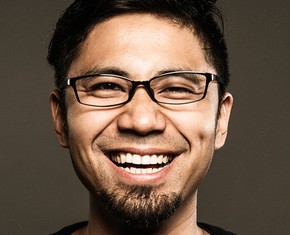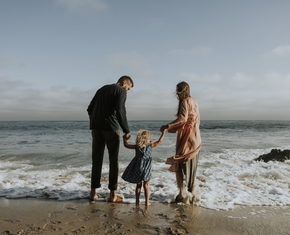The views expressed in our content reflect individual perspectives and do not represent the authoritative views of the Baha'i Faith.
Just try to imagine it for a moment: what would a flourishing world civilization look like, anyway?
Would it educate, feed and house everyone? Would we all be protected from harm? Would each person have access to good health care services when they needed help? Would we have productive and meaningful jobs? Would we carefully steward and protect the world’s environment? Would war cease? Would women and men be equal?
Perhaps, the recent Baha’i International Community’s statement to the UN’s Commission on the Status of Women suggests, a flourishing and universally prosperous world civilization could begin to develop when we pay attention to the fact that humanity has two wings, male and female, and we need them both to fly:
A flourishing world civilization will draw on the participation of all people, whose skills and talents should be harmonized with the needs of the greater good. This will increasingly become possible as all children are given access to a quality education that helps them develop their intellectual and moral capabilities. Moreover, as women are the first educators of rising generations, their educational opportunity should be given emphasis in all communities. The caring, conciliatory qualities that women can bring to the workforce, indeed, to every sphere of life, have long been undervalued, and humanity has subsequently suffered. Can we foresee the fruits that will grow when true partnerships between men and women emerge in all dimensions of life? Humanity can be likened to a bird with two wings, the male and the female, that has struggled to take flight because the female wing has been suppressed for so long. Who can fully envision the great heights to which humanity will soar when both wings are coordinated and strong? – Toward Prosperity: The Role of Women and Men in Building a Flourishing World Civilization, The Baha’i International Community’s Contribution to the 61st United Nations Commission on the Status of Women, p. 3.
We must start that vitally important process now, the statement goes on to say, with the young:
The period of youth is one of immense significance in the life of any human being. This time of life represents a period with special possibilities. It is a time of preparation and action, when the young can develop an orientation to service and a sense of social responsibility that they will carry with them their entire lives. Neither is likely without a special kind of education. Education can be the difference between a young man who respects his female counterparts and one who brutalizes them. Education around such attitudes unfolds at home, in schools, in communities, and the myriad social environments where life plays out. – Ibid., pp. 3-4.
Every child and adolescent is shaped in the crucible of the family, both nuclear and extended. That’s where we must begin, the BIC Statement points out, to organize and implement our commitment to the equality of women and men:
The family is a crucial social environment within which formative education takes place. In this regard, there is much to be learned about organizing societies in a way that does not exclude women from meaningful participation in work should they decide to dedicate a focused period of their lives to the rearing of children. Conversely, it is important to recognize the significant role of fathers in their families’ lives; their ability for substantial engagement in this arena deserves special consideration.
The discipline that governs our relationships with the world is largely formed within the family. The tendencies to be unjust or just, to act violently or with kindness, to be dishonest or trustworthy, are usually developed at home. These habits are then taken into every instance of social interaction, becoming either obstacles or stepping stones to progress, tearing apart or weaving together the very fabric of society. – Ibid., p. 4.
So a flourishing world civilization would look like this, Baha’is believe: it would begin in every home, where children develop and grow. It would focus on encouraging the blossoming of the human spirit. It would see boys and girls as equals. It would educate them equally, too, teaching them that the world’s male dominance must come to an end:
If brothers are allowed to dominate their sisters, for instance, a habit is formed that will be carried from the living room to the classroom, the workplace and finally, the international arena. Conversely, when daughters are included in decision-making processes, when sons are encouraged to care for the household, characters are being developed. Children learn that the intellectual powers of both boys and girls are vital, that the nurturing qualities for which women are known are equally praiseworthy when demonstrated by men. Conversely, when daughters are included in decision-making processes, when sons are encouraged to care for the household, characters are being developed. – Ibid.
From a Baha’i perspective, the family unit first fosters the individual character growth that can lead to the changes an entire society must make. The Baha’i teachings say that “The first link which creates love and justice is the family bond …” – Abdu’l-Baha, Divine Philosophy, p. 175. If love, justice and equality prevail in our children, it will ultimately prevail in our entire civilization:
All peoples and nations are of one family, the children of one Father, and should be to one another as brothers and sisters! I hope that you will endeavour in your lives to show forth and spread this teaching.
Baha’u’llah said that we should love even our enemies and be to them as friends. If all men were obedient to this principle, the greatest unity and understanding would be established in the hearts of mankind. – Abdu’l-Baha, Paris Talks, p. 140.
















Comments
Sign in or create an account
Continue with Googleor